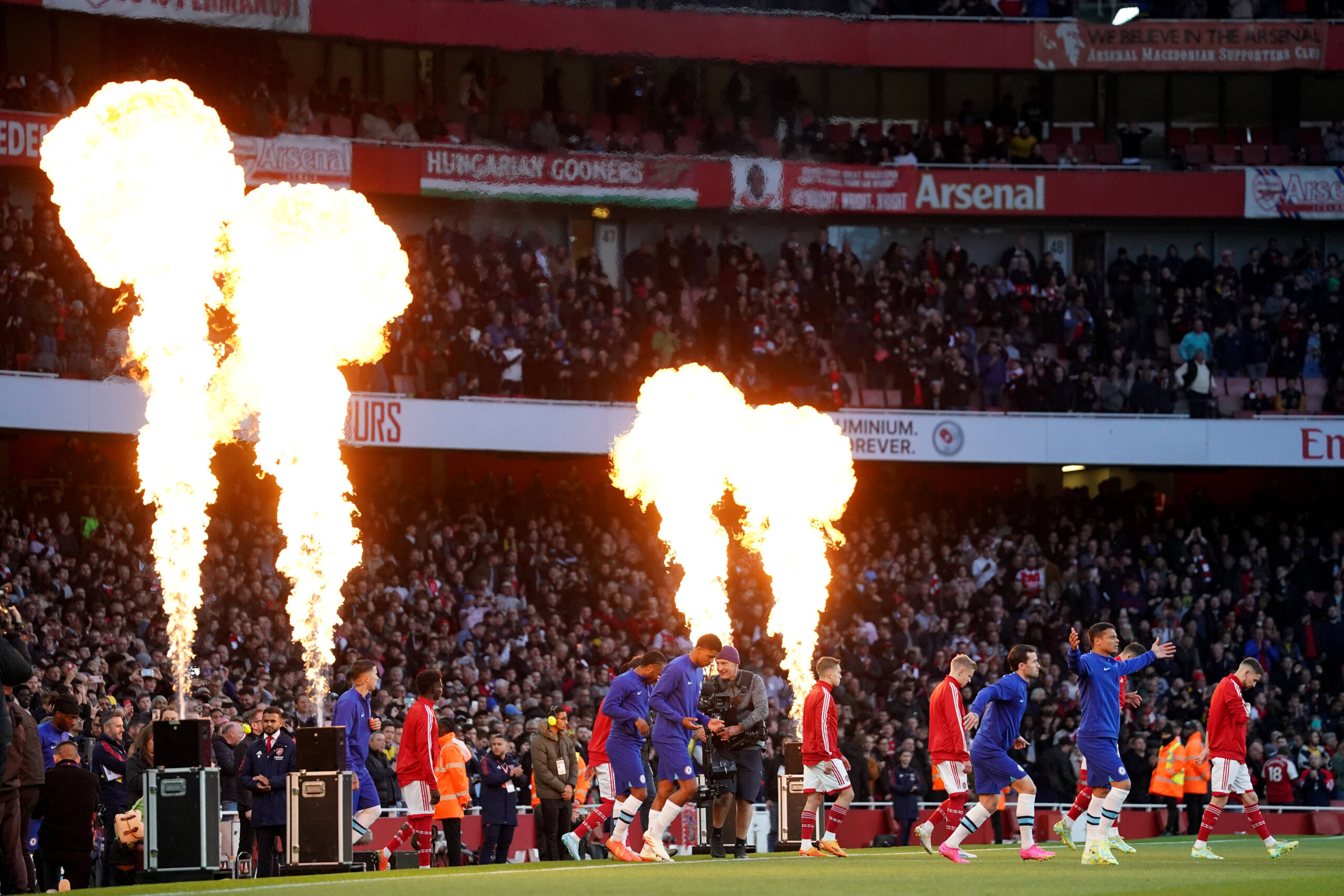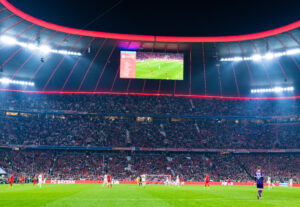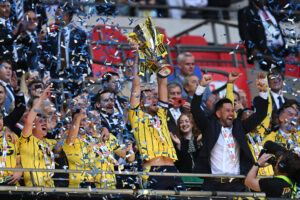After Arsenal made it Lucky 13 against Manchester City before the international break (finally ending a run of 12 successive league defeats to the champions by beating them), will this weekend see four wins in a row for Arsenal at Chelsea? An achievement that would have seemed utterly unthinkable for most of the last 20 years, during which Chelsea have largely dominated Arsenal home and away, is now within reach for Mikel Arteta and his team.
[metabet_core_game_tile query=”536625″ size=”350×350″ style=”fraction” site_id=”sportseventsguide”]
The Arrival of Abramovich Ultimately Signalled The End For Wenger
Arguably no other single team suffered as much from Roman Abramovich’s takeover of Chelsea in 2003 as Arsenal. Although they were not champions that year, after a late-season collapse allowed Manchester United to win the title, they were undoubtedly the dominant side in London, as they had been for most of the 20th century.
Unfortunately for the Gunners and their fans, all of that would change in the Abramovich era. Although they would win one more Premier League title the following season (and become The Invincibles in the process), ultimately Abramovich’s petro-billions allowed Chelsea, who had only ever won one league title before the Russian’s takeover (nearly half a century before, in 1954-55), to become not only the dominant team in the capital but indeed in the whole of England.
Eventually (and it took a very long time), Abramovich’s arrival at Chelsea signalled the end for Arsène Wenger. The 2004 Premier League title was the last one that he ever won. Coupled with the challenge of relocating Arsenal to a new stadium, the proximity of the challenge by Chelsea led to nearly a decade and a half of stagnation at The Emirates, until Wenger (or rather the Kroenkes) finally realised that his time was up and he left the club.
Now, more than five years on from Wenger’s departure, there is a feeling that Arsenal might finally become the top team in London again. However, for all of Mikel Arteta’s undoubted achievements in transforming the Gunners since becoming manager at the end of 2019, in large part that is down to Chelsea’s decline rather than Arsenal’s rise.
Embed from Getty Images
Has The Departure of Abramovich Signalled The End for Chelsea?
Because of his refusal ever to give an interview while in charge at Chelsea, Abramovich was occasionally caricatured as a type of Bond villain, slowly stroking a cat while overseeing the rise of a Second Roman Empire at Stamford Bridge. He and his billions were undoubtedly the single biggest factor in Chelsea’s rise to the top of the English game and the European game, as they won two Champions Leagues in 2012 and 2021, not least because he sacked a succession of managers, including greats such as José Mourinho and Antonio Conte.
Of course it was Russia’s invasion of Ukraine at the start of 2022, not long after Chelsea had finally won the World Club Championship (they lost in the final of the competition at their first attempt in 2012), that eventually ended the Abramovich era at Stamford Bridge. Because of his public support for and indeed close personal relationship with Vladimir Putin, Abramovich found himself the subject of such stringent Western sanctions that he was forced to sell Chelsea. And in his absence, the club’s new owners, the US BlueCo Consortium led by Todd Boehly, and Chelsea’s fans have discovered that it is no longer so easy for one incredibly wealthy man, or even a small group of incredibly wealthy men, to dominate English football, let alone European football.
Since the Boehly-led takeover at the end of the 2021-22 season, Chelsea have plummeted from being European Champions in 2021 to not being in European competition of any kind this season. And although it was thought that the absence of European competition might prove a blessing in disguise this season (the last time that Chelsea failed to qualify for Europe, in 2016, they won the Premier League the following season), it has not worked out that way at all.
The team, or rather squad with all of the seemingly countless players that Boehly has bought (most of them on very long-term contracts, so as to spread the expenditure and thereby stay within financial fair play rules), has continued to struggle and even the arrival of a vastly experienced and able manager, Mauricio Pochettino, has done little to stem the slide.
That History Makes This Match So Important
It is all that history between the two clubs, with Chelsea’s rise over the last 20 years coinciding with and even arguably adding to Arsenal’s decline, that makes this weekend’s fixture so fascinating. It is, of course, only one game, but the suspicion is that if the Gunners can win for a fourth successive game away at Chelsea, they might finally have begun to reassert their once traditional dominance of football in the capital (notwithstanding Ange Postecoglou’s excellent efforts with Tottenham this season).
It is always hard to predict the outcome of any match immediately after an international break; fans and especially managers eagerly await the safe return of all their players from all parts of the world. Nevertheless, if Arteta’s mainly stable (except perhaps in the goalkeeping position) and increasingly impressive side can produce the kind of commanding display that gave them victory at Stamford Bridge last autumn, it will reassert Arsenal’s title credentials and prompt further questions about Boehly and even Pochettino.
Chelsea-Arsenal in October 2023 might just be one match between these two storied rivals. But if the Gunners can win it, that would support the recent trend towards their winning the fixture and perhaps even signal their return to the top of London football.






